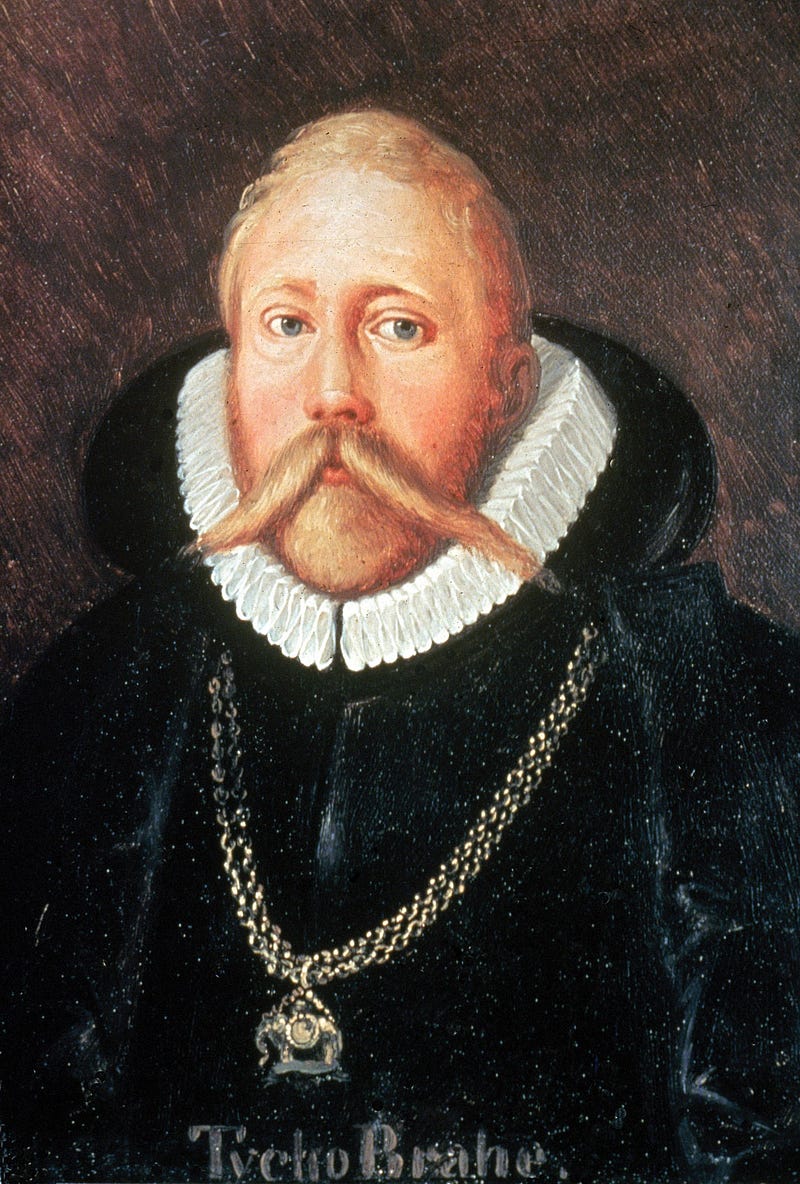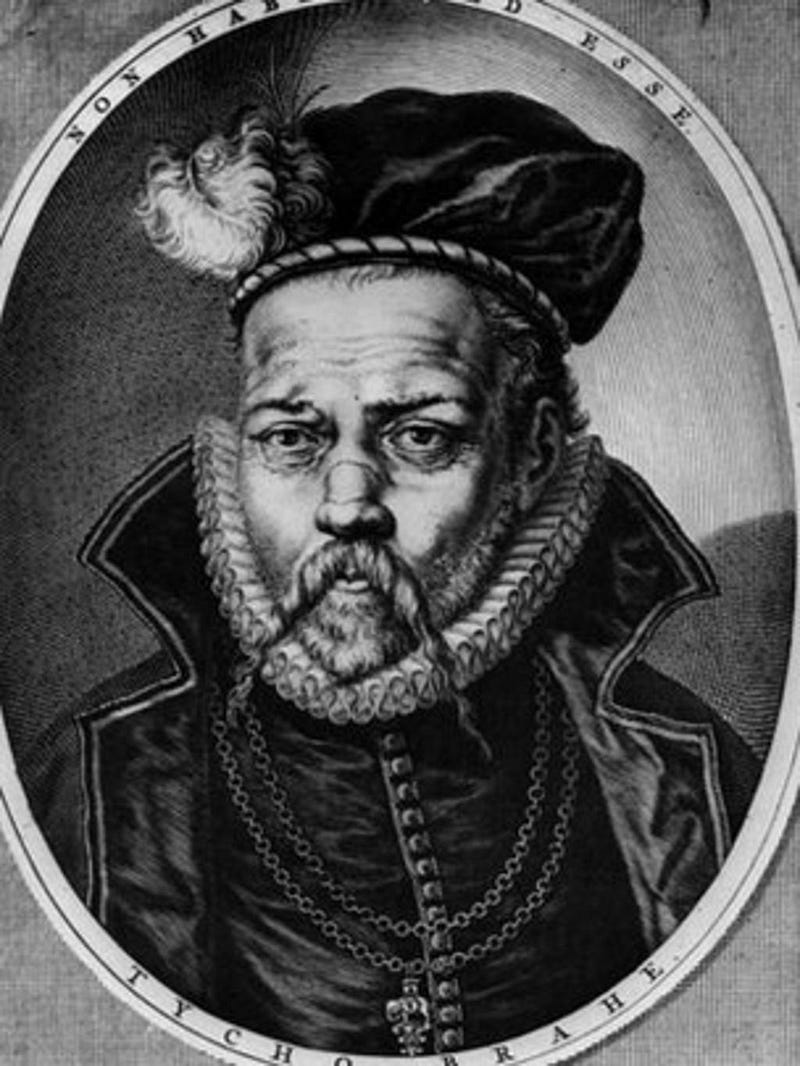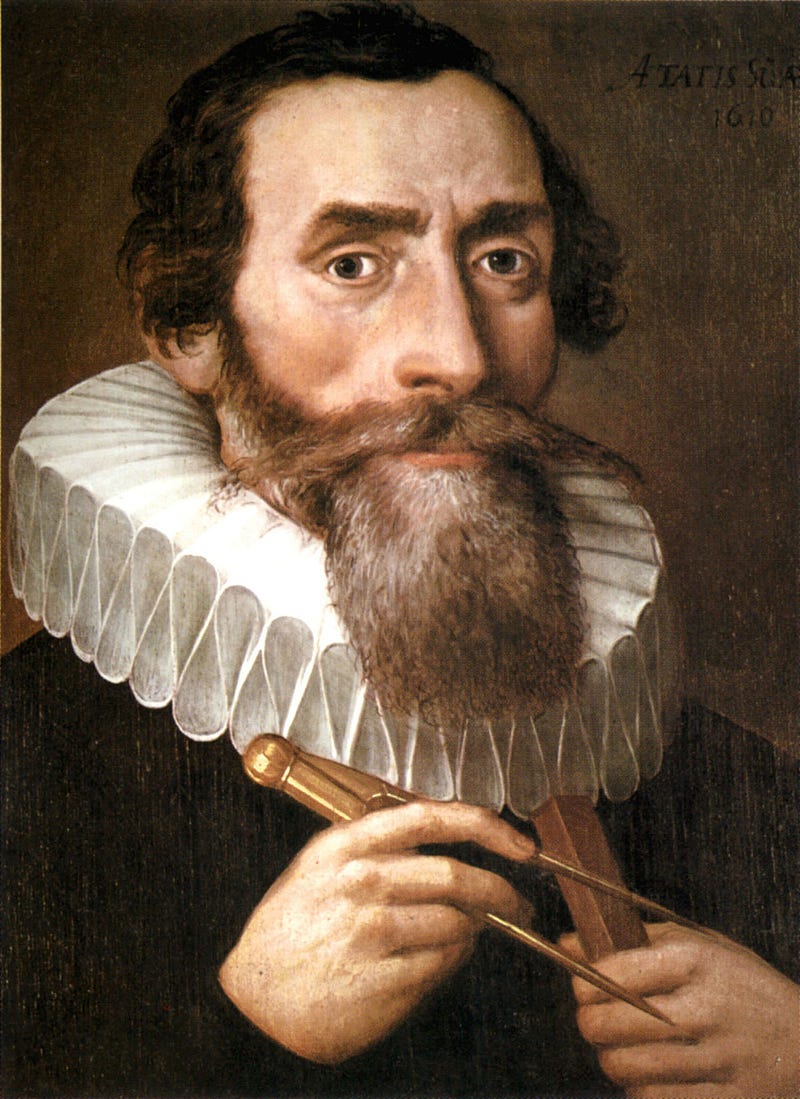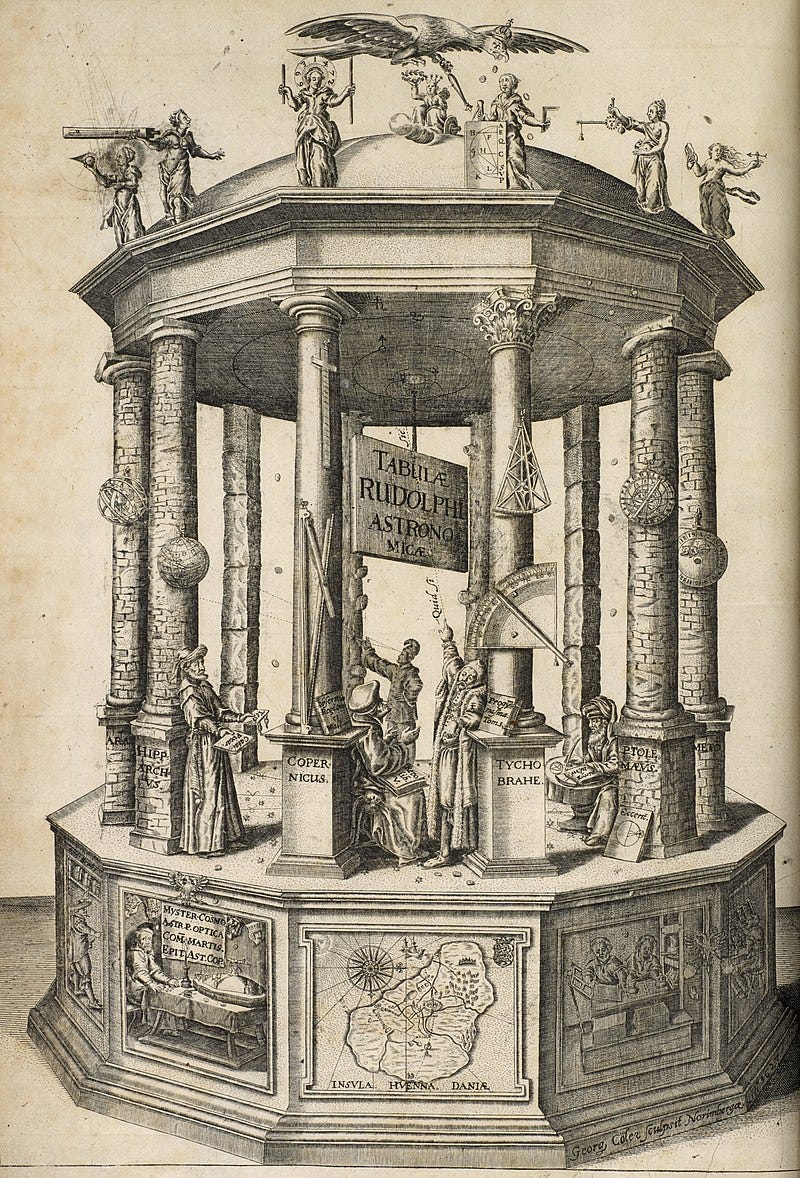The Colorful Life and Contributions of Tycho Brahe
Written on
Chapter 1: The Brass-Nosed Astronomer
Tycho Brahe, a key figure in the history of astronomy, led a remarkably adventurous life filled with intrigue and discovery. His meticulous observations played a crucial role in allowing subsequent astronomers to track the movements of celestial bodies.

An incident at the University of Rostock marked a turning point in Brahe's life. In a duel shrouded in darkness, he faced off against fellow student Manderup Parsbjerg, with the aim of determining the superior mathematician. The duel ended tragically, resulting in Brahe losing his nose. He would go on to wear a brass prosthetic for the rest of his life, but this setback did not impede his ascent as a prominent astronomer. His meticulous calculations significantly aided his assistant, Johannes Kepler, in formulating the laws of planetary motion, which would later inform Isaac Newton's theories.
Section 1.1: Early Life and Interest in Astrology
Tycho Brahe was born in 1546 in Knudstrup, Denmark, to a family of nobility. His father, Otto, served as a privy counselor to the King of Denmark and envisioned a future in law for his son. However, Brahe was drawn to the stars. During his studies, he successfully predicted the death of the Ottoman Sultan Suleiman the Magnificent, due to a lunar eclipse, enhancing his reputation immensely.

Section 1.2: Establishing Uraniborg
Brahe initially considered relocating to Basel but was offered the island of Hveen by King Frederick II, who funded the establishment of his astronomical laboratory. Brahe named this facility Uraniborg. The project was so costly that it consumed a significant portion of the Danish crown's annual budget. This laboratory allowed Brahe to conduct continuous observations, where he meticulously recorded the positions and movements of numerous stars.
In addition to his astronomical pursuits, Brahe provided astrological forecasts for the royal court, creating a calendar of favorable and unfavorable days, some of which, known as "Tycho days," are still acknowledged in Sweden today.

Chapter 2: A Life of Extravagance and Innovation
Brahe's lifestyle was characterized by opulence and eccentricity. Following the death of King Frederick, his successor, King Christian, was less than pleased with Brahe's lavish habits. Known for his extravagant parties and interest in alchemy—then a largely forbidden practice—Brahe's reputation became controversial. One notable incident involved his pet elk, which tragically died after falling down the stairs.

Brahe's prosthetic nose, crafted from brass, became a symbol of his quirky persona. He would often carry glue with him to reattach it when it fell off. Eventually, he relocated to Prague, where his career continued to flourish.

Section 2.1: Collaboration with Johannes Kepler
In Prague, Brahe met Johannes Kepler through a mutual acquaintance. Impressed by Kepler's passion, Brahe appointed him as his assistant. Kepler later remarked that his time working with Brahe was among the most fruitful periods of his life, recognizing Brahe's exceptional intellect in astronomy.
Brahe's health began to deteriorate after an extravagant party in October 1601, during which he overindulged in food and drink. His refusal to leave the table to relieve himself resulted in a serious illness that ultimately led to his death.

Section 2.2: Legacy and Controversy
Brahe's death left a significant void, as he had no legitimate heirs. Consequently, Kepler inherited Brahe's extensive astronomical data. Speculations arose regarding the possibility that Kepler had poisoned Brahe to obtain his notes. Though hair samples from Brahe's remains suggested mercury poisoning, later studies disputed this theory.
Kepler utilized Brahe's observations to advance his own theories regarding planetary motion, most notably establishing that planets travel in elliptical orbits. His work culminated in the publication of the Rudolphine Tables, which served as a tribute to Brahe's legacy.

Tycho Brahe’s vibrant and unconventional life not only contributed to the evolution of astronomy but also demonstrated that scientists can lead colorful and fascinating lives.
The first video, "The Drunk Astronomer Who Changed Science Forever," delves into Brahe's unique personality and contributions to science.
The second video, "The 'Golden' Nose of Tycho Brahe," explores the eccentricities and life of this remarkable astronomer.